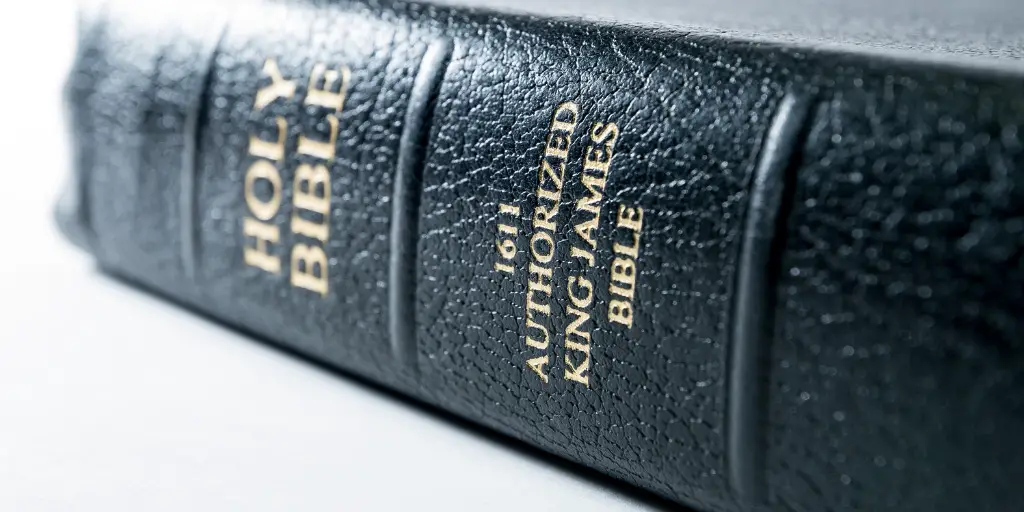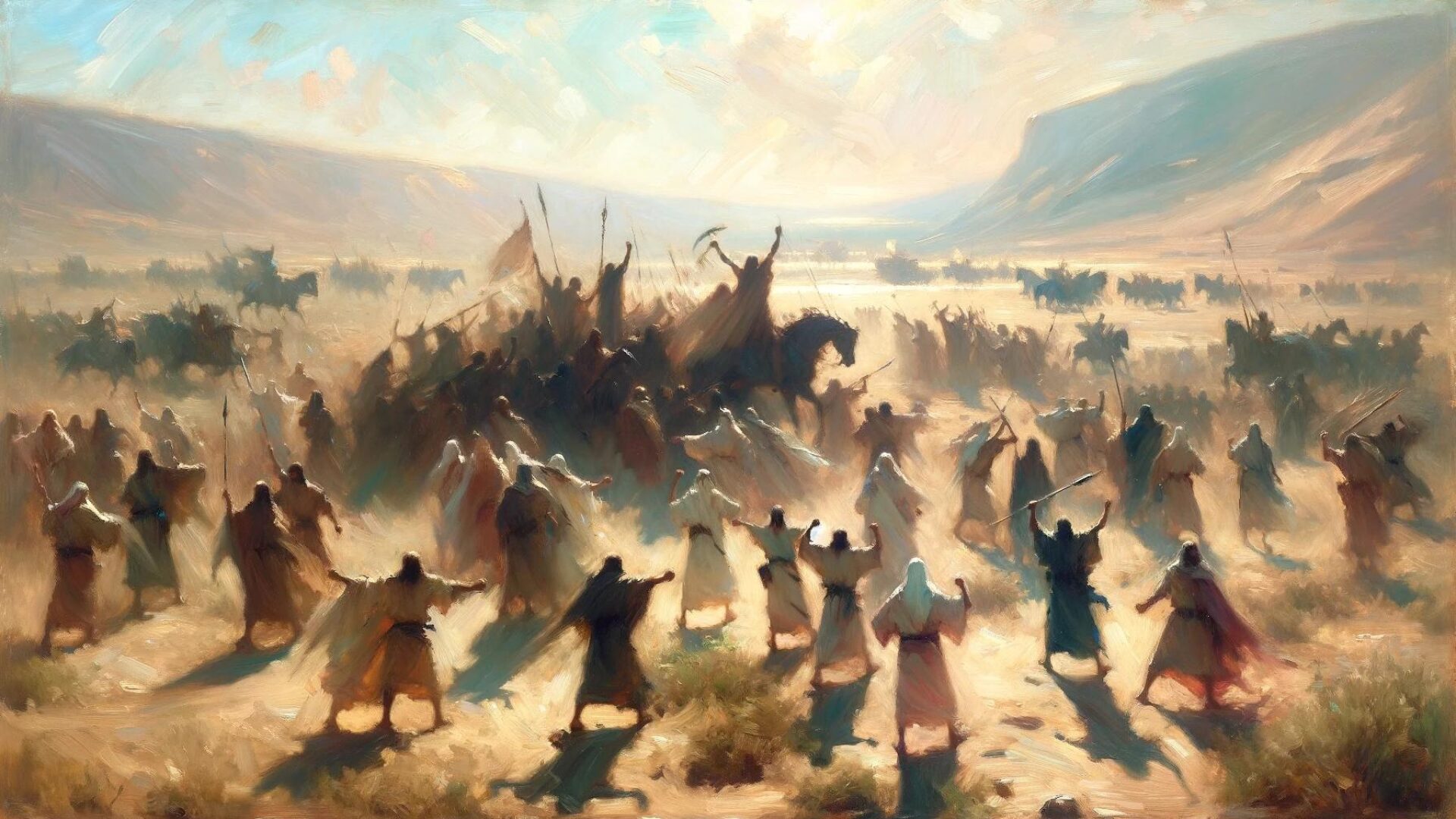When we talk about the King James Bible, the first question that comes to mind is: Who is King James that wrote the Bible? King James, also known as James VI of Scotland and James I of England, was a monarch who commissioned the translation of the Bible into English.
Born in 1566, King James became King of Scotland at the age of 13 months after his mother, Mary, Queen of Scots, abdicated the throne. He succeeded to the English throne in 1603, becoming the first monarch to rule both Scotland and England.
It was during his reign that he commissioned the translation of the Bible into English, which ultimately became known as the King James Bible. The translation was completed by a team of scholars over a period of seven years and was first published in 1611.
Today, the King James Bible is considered one of the most influential works in the English language and has had a significant impact on religious, cultural, and literary spheres.
Key Takeaways:
- King James was a monarch who commissioned the translation of the Bible into English, which ultimately became known as the King James Bible.
- The translation was completed by a team of scholars over a period of seven years and was first published in 1611.
- The King James Bible is considered one of the most influential works in the English language and has had a significant impact on religious, cultural, and literary spheres.
King James I of England and King James VI of Scotland
King James I of England, also known as King James VI of Scotland, was born in Edinburgh in 1566 and ascended to the throne of Scotland at just thirteen months old when his mother Mary, Queen of Scots abdicated. He ruled over Scotland for 57 years and was crowned King James I of England when Elizabeth I died in 1603, unifying the two nations under one monarch.
During his reign, King James I made significant contributions to England and Scotland’s cultural and religious developments. He was an advocate for the arts, sponsoring the creation of Shakespeare’s theater company, and appointed him as the King’s Men. King James I also oversaw the production of the King James Bible, which is widely regarded as one of the most important translations of the Bible ever produced.
The King James Bible holds a significant place in history as it not only represents an important milestone in the history of Christianity but also played a pivotal role in shaping the English language. King James I saw the need for a new English translation of the Bible that was authorized by the Church of England. The result was the King James Version, a project that took seven years to complete and involved over fifty scholars, who used several existing translations as a basis for their work.
One of the most distinctive features of the King James Bible is its use of language. The text is written in a poetic and elegant style, which has influenced English literature ever since. Today, the King James Bible remains the most widely read translation of the Bible in the English-speaking world and continues to inspire readers with its timeless language.
The Making of the King James Bible
The King James Bible is regarded as one of the most significant translations of the Bible into the English language. The translation was commissioned by King James in 1604 and completed in 1611. The process involved a team of scholars who worked tirelessly on the translation of the Bible, which was originally written in Hebrew, Aramaic, and Greek.
The team of scholars, commissioned by King James, was made up of 47 translators, divided into six groups, who worked on different sections of the Bible. The team was highly skilled in ancient languages such as Hebrew, Greek, and Aramaic, as well as Latin, which was the language of the Church. The scholars followed strict rules and guidelines set by King James, which ensured that the translation was as accurate and authentic as possible.
| Methodology | Translation approach |
|---|---|
| The scholars worked from the original texts to ensure accuracy and authenticity. | The translation approach was to stay as close to the original text as possible while also making it readable for the English-speaking audience. |
| Use of previously published translations was allowed, but only as a reference. | The scholars were allowed to consult other translations but were strictly instructed to use their own judgment in ultimately rendering the translation. |
| Collaboration was encouraged to ensure a consistent translation. | Collaboration was encouraged to ensure a consistent translation across different sections of the Bible. |
The King James version of the Bible is known for its majestic and poetic language, which has had a significant impact on English literature. The language used in the translation has been described as beautiful, rhythmic, and melodious. The translation has also been praised for its clarity, accuracy, and readability.
Overall, the King James Bible remains a significant historical and cultural artifact, a testament to King James’ commitment to producing a quality translation of the Bible for English-speaking audiences.
Controversies Surrounding the King James Bible
Despite its significance and popularity, the King James Bible has not been without its share of controversies and criticisms. Some of the most notable issues include:
- Textual Accuracy: One of the main controversies surrounding the King James Bible is its accuracy in translation. Critics have pointed out discrepancies and errors in the translation, as well as differences from earlier versions of the Bible. However, supporters argue that the translation was done with great care and attention to detail, and that any errors are relatively minor.
- Bias: Another criticism of the King James Bible is its perceived bias towards certain religious interpretations. Some have pointed out that the translators were influenced by their own personal beliefs and agendas, leading to the inclusion or exclusion of certain passages. Critics argue that this undermines the Bible’s credibility as an objective source of religious knowledge.
- Content: In addition to issues of accuracy and bias, the King James Bible has also been criticized for its content. Some passages, particularly in the Old Testament, have been deemed violent, offensive, or outdated. Critics argue that these passages have no place in modern religious discourse and should be omitted or reinterpreted.
Despite these controversies, the King James Bible remains one of the most influential and widely read versions of the Bible. Its impact on language, literature, and religious thought cannot be underestimated, and its legacy continues to be felt today.
Conclusion
In conclusion, King James’ involvement in the creation of the Bible has had a profound and lasting impact on religious, cultural, and literary history. As both King James I of England and King James VI of Scotland, he played a significant role in shaping the religious landscape of his time. The commissioning of the King James Bible marked a pivotal moment in the history of the English language, as well as in the history of Christianity.
Despite controversies and criticisms surrounding the King James Bible, its enduring legacy cannot be denied. The translation process was carefully crafted by a team of skilled scholars, who took into account linguistic and cultural nuances, resulting in a work that has stood the test of time. Today, the King James Bible remains an important religious text for many denominations, as well as a significant piece of literature that has influenced generations of writers and readers.
FAQ
Q: Who is King James That Wrote the Bible? Unveiling the Author.
A: King James, also known as King James I of England and King James VI of Scotland, is the monarch responsible for commissioning the translation of the Bible that bears his name. He was a significant figure in English and Scottish history, known for his reign and impact on religious and cultural matters.
Q: King James I of England and King James VI of Scotland
A: King James I of England and King James VI of Scotland, often referred to as King James, was a monarch who held dual titles. He reigned over England from 1603 until his death in 1625 and Scotland from 1567 until his death. His reigns were marked by noteworthy accomplishments and important contributions to religious and cultural development.
Q: The Making of the King James Bible
A: The King James Bible was created through a collaborative effort by a team of scholars commissioned by King James. The translation process involved meticulous linguistic and cultural considerations, resulting in a version that is highly regarded for its unique features and impact on language and literature. The King James Bible has played a significant role in shaping religious belief and practice.
Q: Controversies Surrounding the King James Bible
A: The King James Bible has not been without controversies and criticisms over the years. Some have raised concerns about its textual accuracy, alleged bias in translation, and the inclusion or exclusion of certain passages. The reception of the King James Bible has also varied among different religious denominations.





